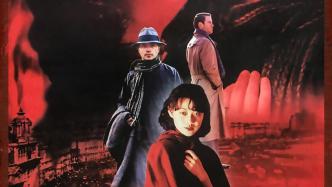
On September 11, Beijing, when the lights of Hall 1 of the China Film Archive came on, the audience applauded. Sitting in the middle of the fifth row of the auditorium, director Ye Daying's face was flushed with tears on his cheeks. Beside him, producer Zhang Heping, the veteran leader of Beijing's Forbidden City Pictures, patted his shoulder with emotion and said: "Daying, this is a great movie."
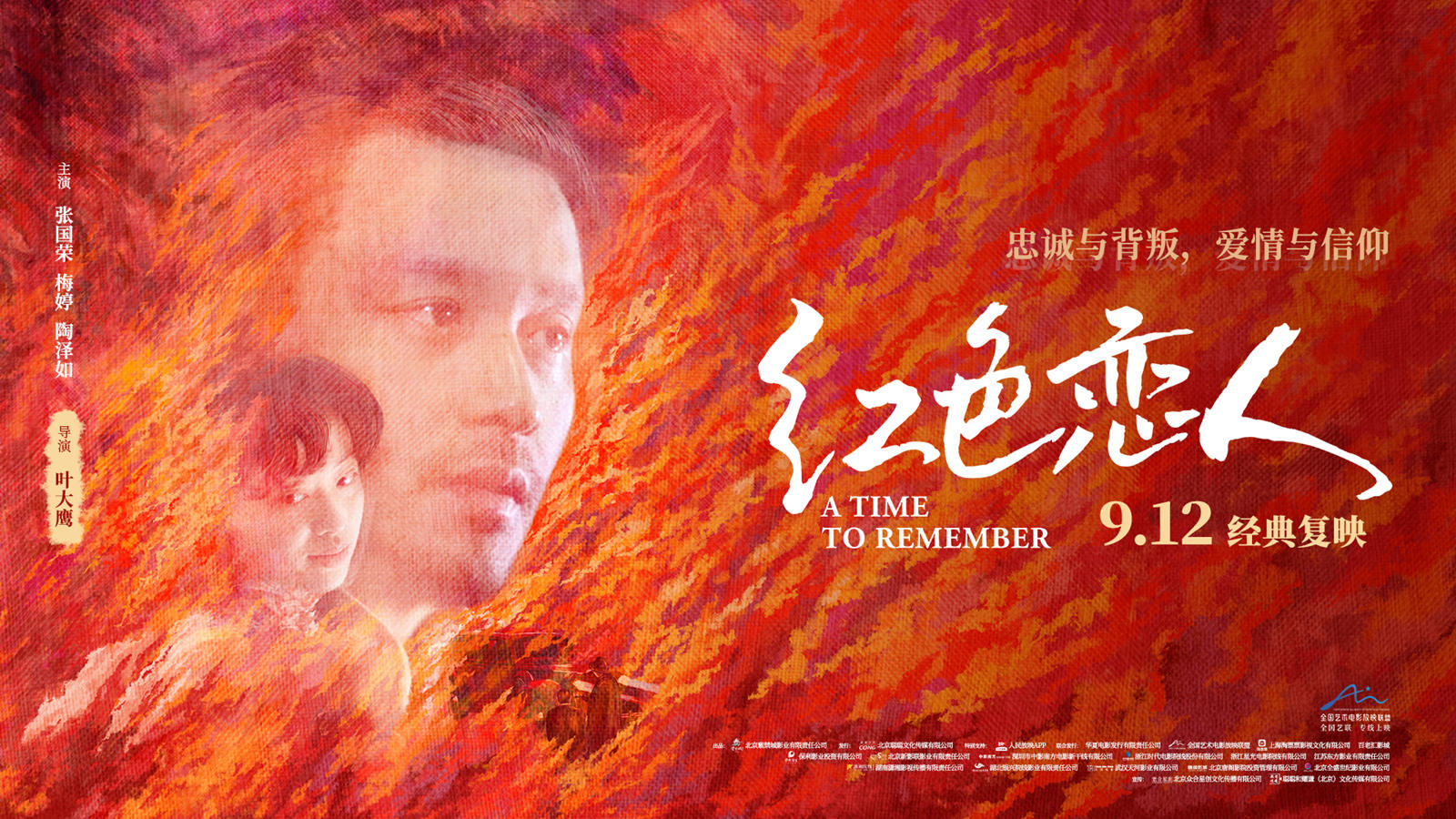
"Red Lovers" revival poster
As the director and producer of the 1998 released movie "Red Lover", at that moment, their hands were held together. 25 years have passed, and this "red" film that caused a great sensation that year was finally taken out of the dusty film box in the warehouse, transferred from the film version to the digital version, and returned to the big screen again, and will be screened at the National Art Theater on September 12 Film Exhibition Alliance cinema dedicated line screening.
"Tonight, I cried while watching. Da Ying sat next to me, and I heard him crying too. I specially wore a red dress today. This dress is not so new, but it is sincere and real." Producer Zhang Heping said during the communication session at the premiere, "Comrades, it is not easy to re-release this movie. There have been so many ups and downs in it... I could write a book."
The audience burst into applause again, perhaps the only one missing was No. 12 in the ninth row of the auditorium.
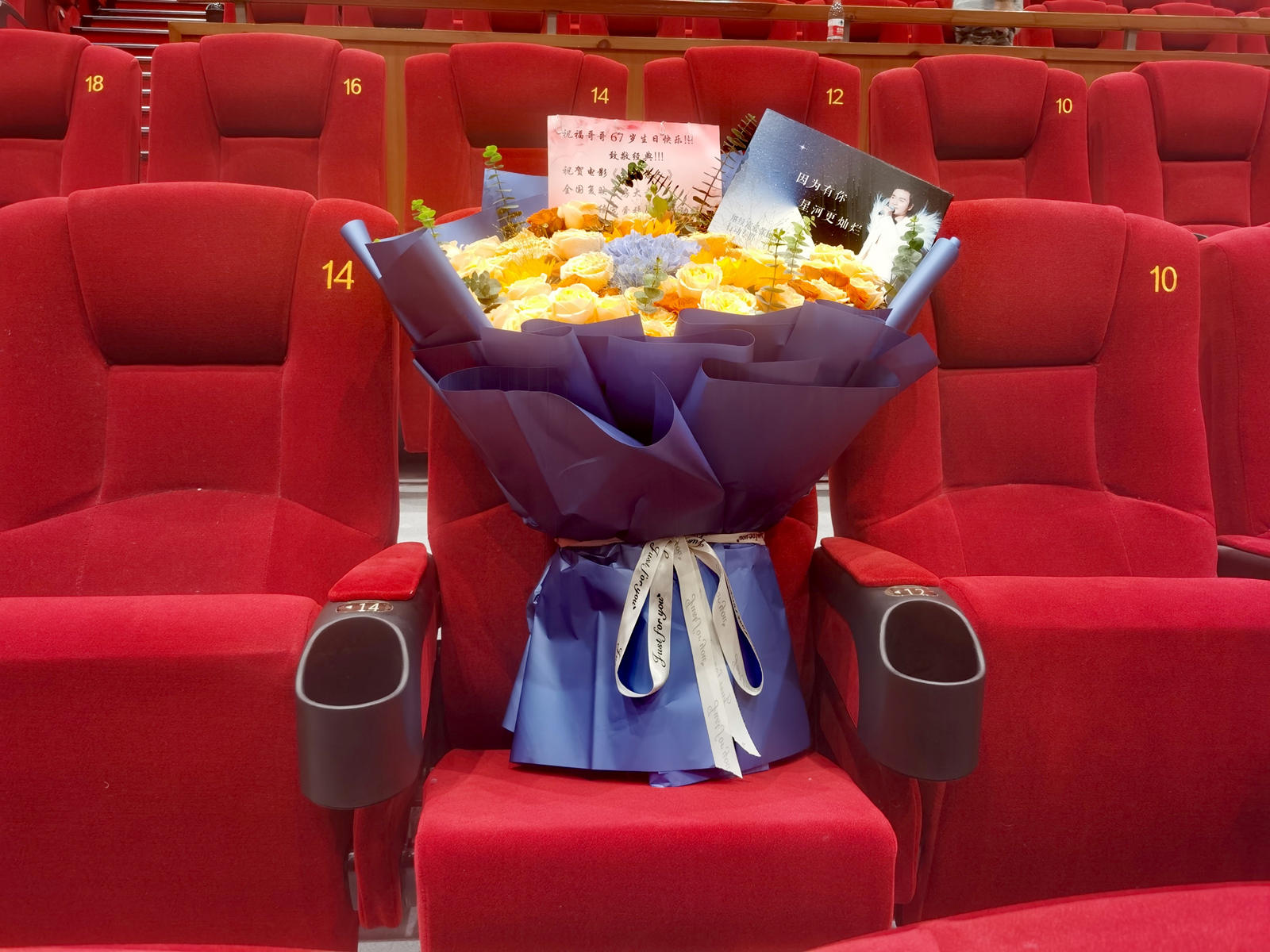
At the premiere, the nine rows and twelve seats in Hall 1 of the China Film Archive were reserved for his brother Leslie Cheung
A bouquet of flowers was quietly placed on this empty seat. On the flowers was a note that read: "Happy 67th birthday to my brother!!! Tribute to the classics!!!" It comes from a thoughtful "Rong fan" . September 12, the day of the re-release, is the 67th birthday of Leslie Cheung, the star of "Red Lover".
Hong Kong star Leslie Cheung plays the leader of the underground party of the Communist Party of China. Ye Ting’s grandson Ye Daying directs a "red" movie again after "Red Cherry" - Looking through newspapers and magazines from 25 years ago, there are numerous reports on "Red Lovers", but most of them are consistent with the above two. This is a key point - and no matter how the historical situation changes, writing the history of Chinese films in the 1990s seems to be inseparable from the two films directed by Ye Daying.
Let’s talk about “Red Cherry” first. The film was released in 1995, and many viewers learned for the first time that in the 1930s and 1940s, a group of children of Chinese Communist Party leaders spent a little-known and extremely unusual time in the Soviet International Children's Home. Putting aside the noisy controversy over the film's protagonist Chu Chu being "naked" on the big screen, that year was the 50th anniversary of the victory of the World Anti-Fascist War. In the comparative field of world film history, for the first time, Chinese filmmakers used a domestic film to connect the war trauma and heroic resistance of the Chinese nation overseas to the grand history of the world's anti-fascist war.
From the perspective of the film industry, Ishikawa, vice chairman of the Shanghai Film Association and professor at the Shanghai Theater Academy, recalled: "In 1992, the "Decision on Accelerating the Development of the Tertiary Industry" was issued, and films were clearly listed as the tertiary industry. Chinese films The industrialization of movie theaters started here. Previously, movie theaters were cultural units and could receive government subsidies. After industrialization, they had to be responsible for their own profits and losses and operate independently. Within two years, Chinese movies could no longer survive, so the introduction of separate accounts in 1994 Hollywood commercial blockbusters came to continue the film market. Just in 1995, "Red Cherry" and "Sunny Day" were released. These two films performed particularly well in the market and had a high reputation among the audience, which shocked the entire domestic film industry. . "Red Cherry" has opened up a new path in the marketization of theme movies. It is not shot according to the serious dramas of the past, but romanticizes the revolutionary theme, changes the inherent narrative mode of red movies, and forms its own unique artistic expression.”
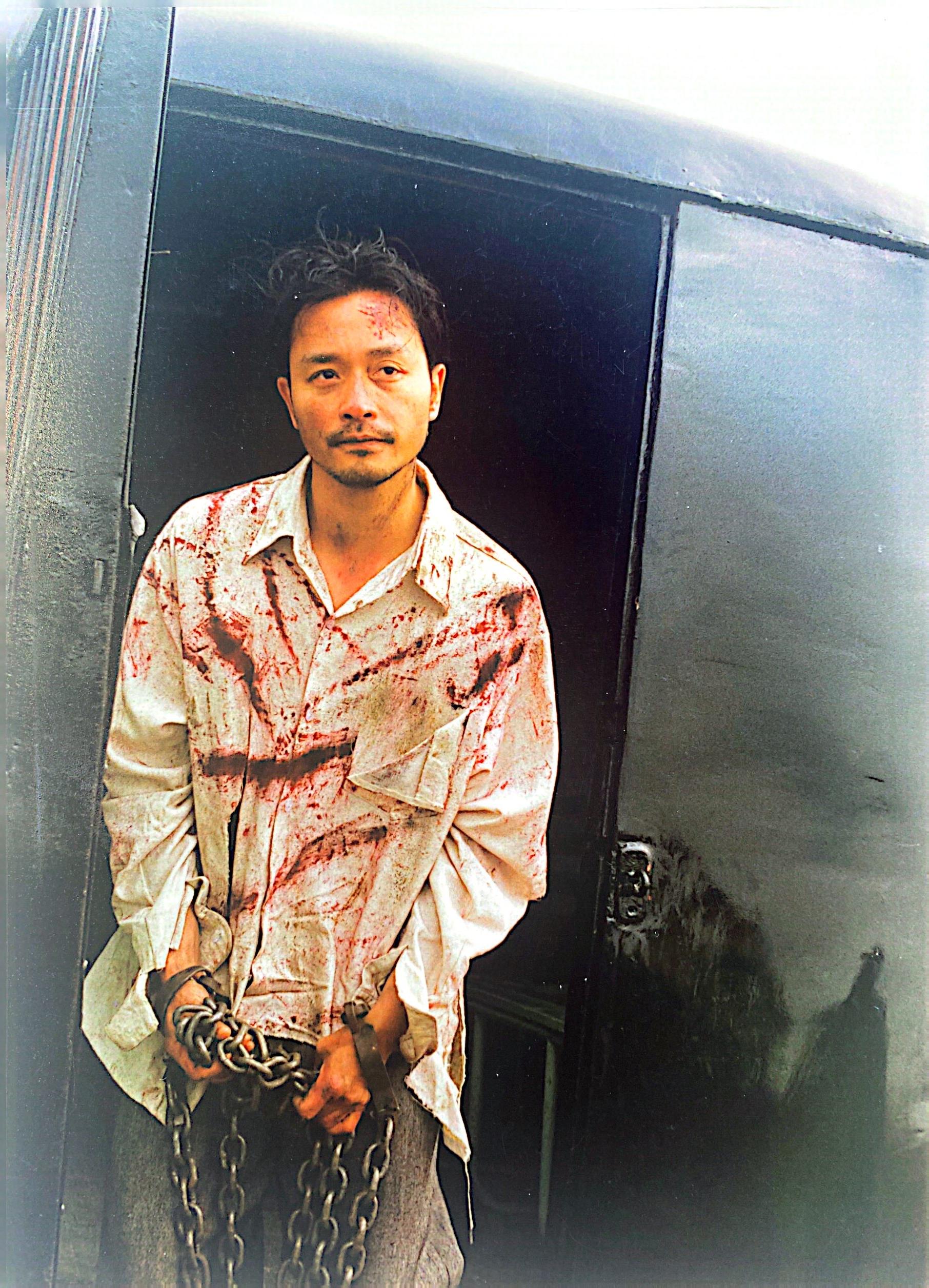
Leslie Cheung as Jin
In 1998, the hit release of "Red Lovers" continued the topicality of "Red Cherry". Before the film was released, the biggest controversy surrounding the movie was whether Leslie Cheung could play a member of the Communist Party of China? And is he a good actor? According to director Ye Daying's later self-report, the profile of the characters he wanted to reflect at that time was the image of the early Communist Party, who could speak English, had a cultural temperament, and had a weak sense of material things. "I consider the characteristics brought by the character's family background. This is easier to find among overseas Chinese, but more difficult to find in the mainland. We actors in their 40s are generally the kind who are not afraid of hardship and death. The image is rough, but in terms of cultural temperament, the personality and spiritual aspects that really come from the heart are not as delicate as those of outside actors. So I gave the script to my friends in Hong Kong and asked them to find roles."
Ye Daying later confessed that he initially planned to cast John Lung as the revolutionary Jin, but a Hong Kong friend strongly recommended Leslie Cheung to him and they had a meal together. "That was the first time I met Leslie Cheung face to face. He was very caring. He should have read the script before coming, but he said he didn't read it. This man is very elegant and measured, but he has a strong self-esteem. And on that day, his face He had a short stubble, and there was a trace of vicissitudes in his soft beauty. I told him the stories of those idealistic revolutionaries, and they were all stories about human beings. I found that his eyes followed the fate of the characters in the stories. The ups and downs are constant. As soon as I ate this meal, I knew in my heart that this guy can do it, absolutely."
After the Beijing premiere of "Red Lovers" on September 11, Ye Daying accepted an exclusive interview with The Paper.
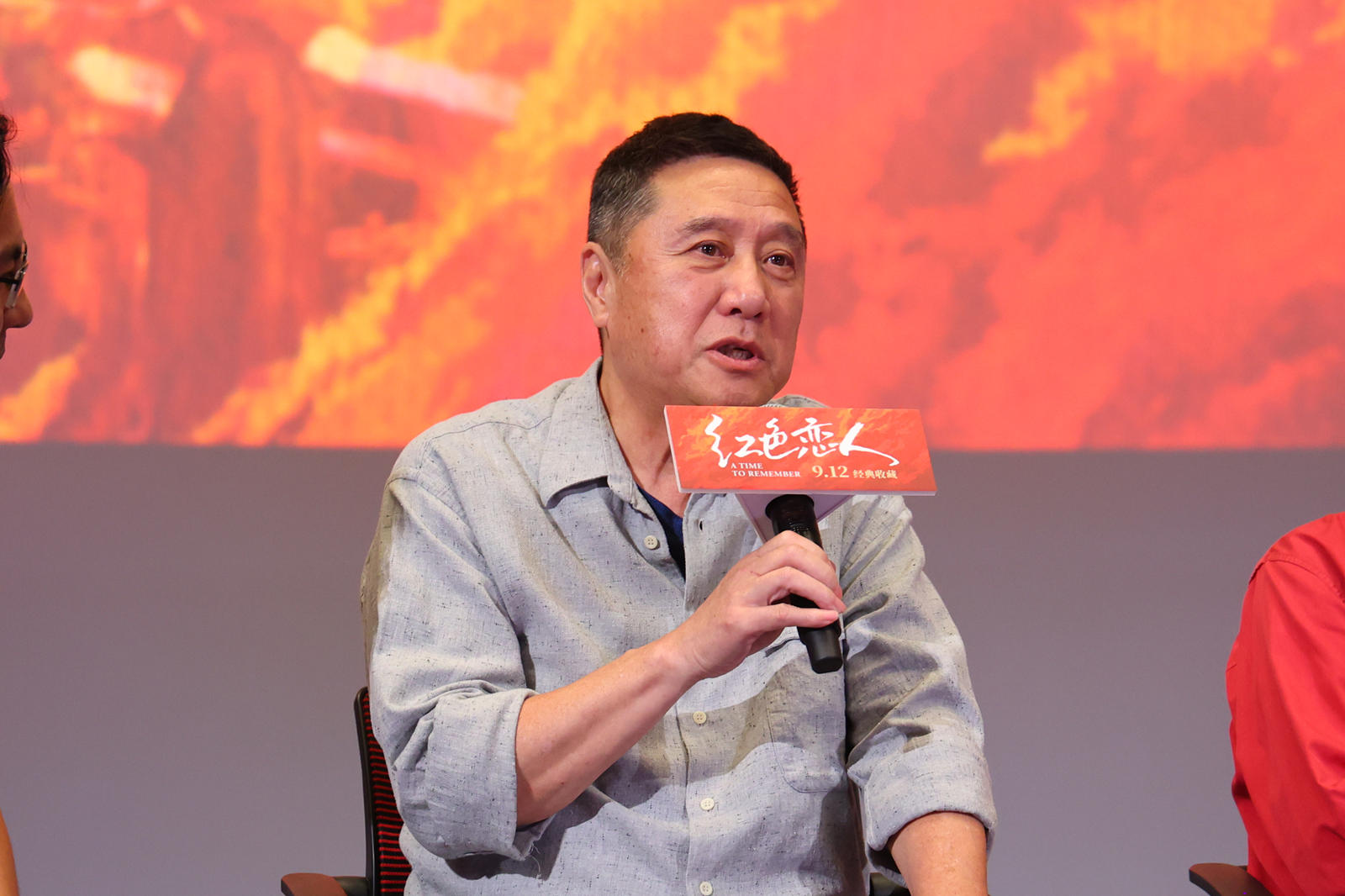
Ye Daying
【dialogue】
That generation of professional revolutionaries was the most romantic group in China’s thousands of years of civilization.
The Paper: The title of "Red Lover" actually implies that the film is an evolution from revolutionary heroism to revolutionary romanticism. Please talk about how you view revolutionary heroism and revolutionary romanticism? After all, one word that appears frequently in this movie is "romance."
Ye Daying: When creating and filming "Red Lover", we definitely focused more on revolutionary romanticism. The film was positioned as a "classic romantic-themed film" and was completed on the basis of revolutionary heroism. A revolutionary romanticism returns to the screen.
In the magnificent Chinese revolution, there are thousands of heroes. My grandfather Ye Ting embodies revolutionary heroism more and is even a benchmark-like existence. But within the party, there are also heroes like Qu Qiubai. He was dismissed from his leadership position and marginalized, but when faced with the enemy's gun, if his faith was slightly shaken, he might be able to survive. But just like Jin's line in the movie, "If I can't live proudly, then I choose to die!" In fact, it's not just Qu Qiubai, but also Mao Zemin, etc. I have heard too many heroes who were loyal in the face of torture and the butcher's knife. The unyielding story really brought tears to my eyes.
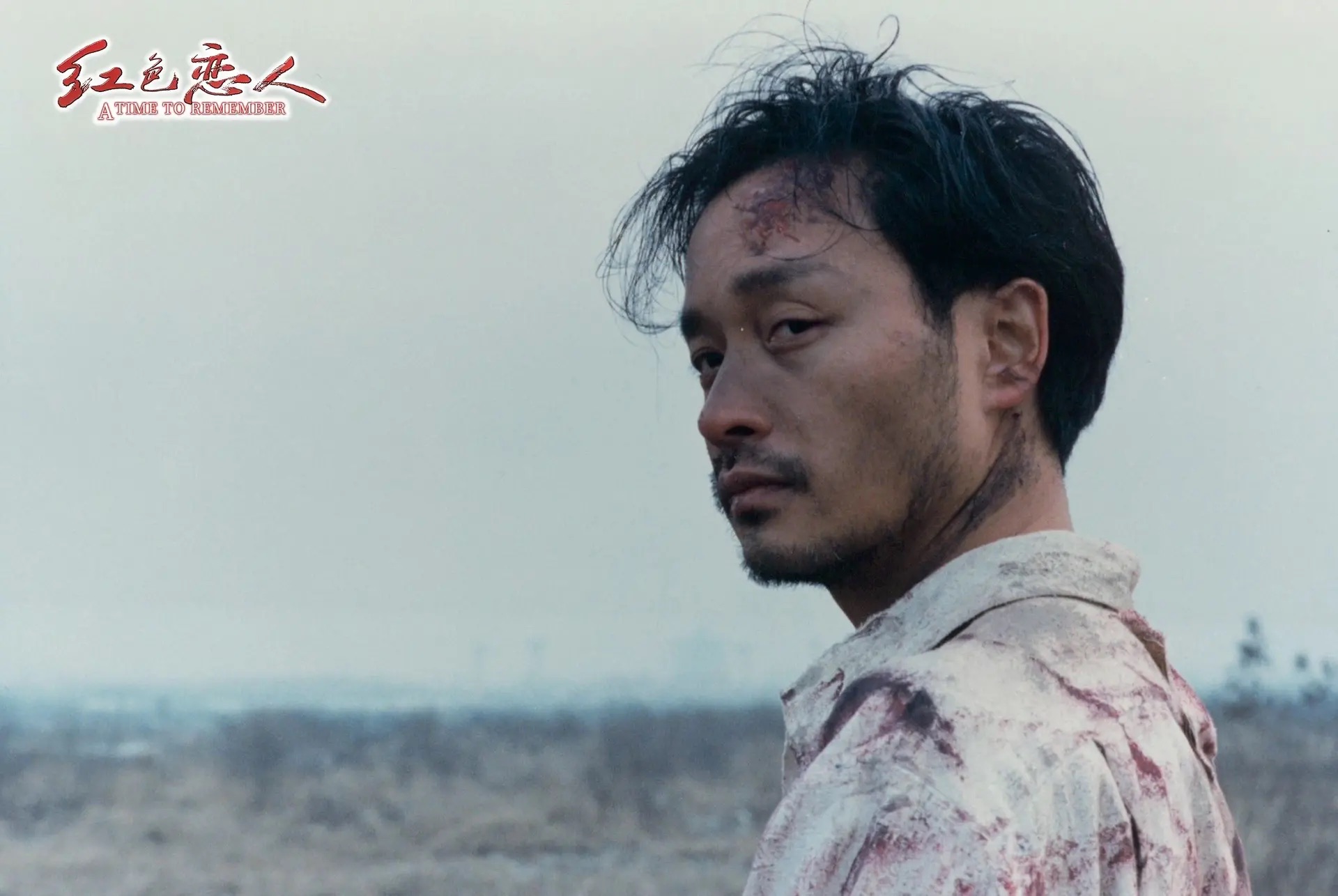
Stills of "Red Lover"
The Paper: In the movie, Jin’s sacrifice was to face the enemy’s gun, which is the same as Qu Qiubai’s choice of sacrifice.
Ye Daying: Showing the martyrdom of martyrs is a particularly big problem for the director. We have already produced "Wedding on the Execution Ground" and "Eternal Life in Fire". From the perspective of people of my generation, I was not yet 40 years old at the time, so I was thinking about how to create a different presentation, which would be more powerful than using a slogan.
There is the shadow of Qu Qiubai here, who walked towards the execution ground with his head held high. Along the way, he sang his own translation of "The Internationale" and sat cross-legged on a lawn. Facing the enemy's gun, his last words were "This place is very good!" It is said that he also told the executioner at that time, "Don't fight. My face." Qu Qiubai is a person who pursues nobility both internally and externally. Moreover, the love story between him and his wife Yang Zhihua, including his experience of going to Shanghai to recuperate from tuberculosis, are also integrated into the plot of the movie.
In the film, Jin is sitting on a chair facing the muzzle of a gun. At this point, we made reference to the death of Ji Hongchang. It was winter when we were shooting, and the big iron chains on Leslie Cheung's hands and feet were real. I told him that apart from panoramic and close-up shots, he could take them off when he couldn't be photographed, but he had to keep them on and be immersed in them all the time. In that feeling. We used high-speed photography to capture it clearly and clearly. When the gunshot was fired, Jin suddenly fell over, and his limbs and iron chains formed an "I" shape in the air. This picture definitely left a deep impression on the audience and was particularly impactful.
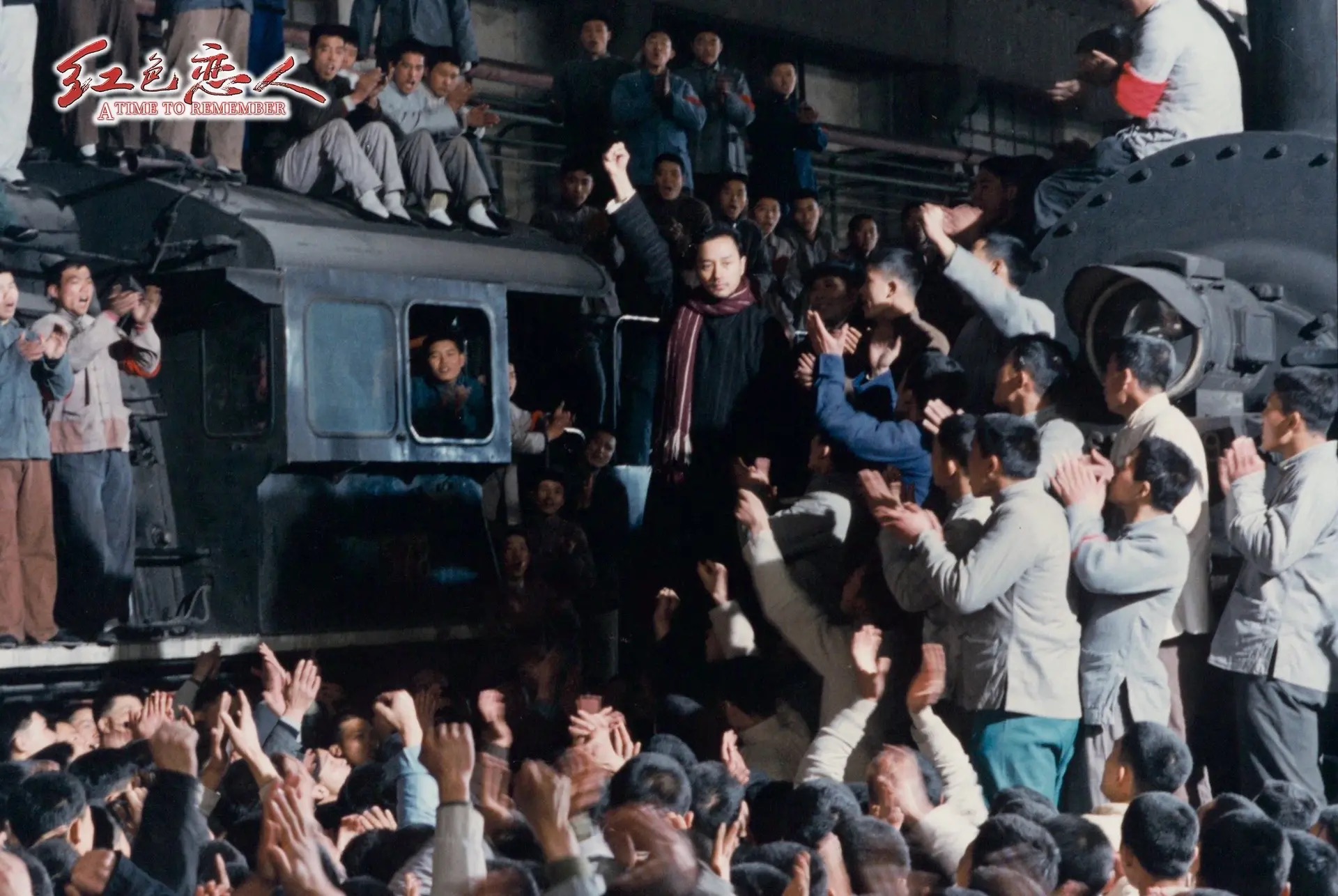
Stills of "Red Lover"
The Paper: You once said that you heard a lot of love stories from your parents when you were preparing for "Red Cherry". What qualities and details in these stories prompted you to make "Red Lover"?
Ye Daying: I have always believed that the professional revolutionaries of the 1920s and 1930s were the most romantic in the thousands of years of Chinese civilization. If in a normal living environment, everyone has a very realistic family, how come these people started a revolution? For example, Peng Pai came from a feudal family and divided his family property to join the revolution. If you look at him as a human being, you can understand his difficulties. How can he give up his blood ties when facing his family?
In the process of creating "Red Cherry", we interviewed nearly thirty children of revolutionary martyrs and early leaders of the Chinese Communist Party, and listened to their experiences of that year, including love stories. In "Red Lover", Jin and his deceased wife met while studying in France, and there are stories about the early Communists who studied in France. But it doesn’t have to correspond to the prototype. Too many stories permeate my subconscious and become an emotion that must be photographed.
It is not our first time to tell the story of the Chinese revolution from a foreigner’s perspective.
The Paper: Let ’s talk about script creation. Did you dictate these stories to screenwriter Jiang Qitao, and did he write the script?
Ye Daying: Actually, it was the three of us. Screenwriter Jiang Qitao and cinematographer Zhang Li and I listened to the story together and we all felt that we must make a movie like this. I started collaborating with Zhang Lishi from my debut film "Breathe", and he was the cinematographer at that time. After the filming of "Breathe", there were some criticisms from the society, so I was determined to make a "red movie". Jiang Qitao was a well-known military writer in the 1980s. Zhang Li and Jiang Qitao were good friends. He introduced Jiang Qitao to me, and we collaborated on "Red Cherry". The three of us worked together.
The original idea was to make a film called "Red Woman", a story about three generations of a communist red family and three generations of women. After writing, the male character Jin was highlighted. It can be said that after the filming of "Red Cherry" was completed, we had already made the psychological desk for "Red Lover".
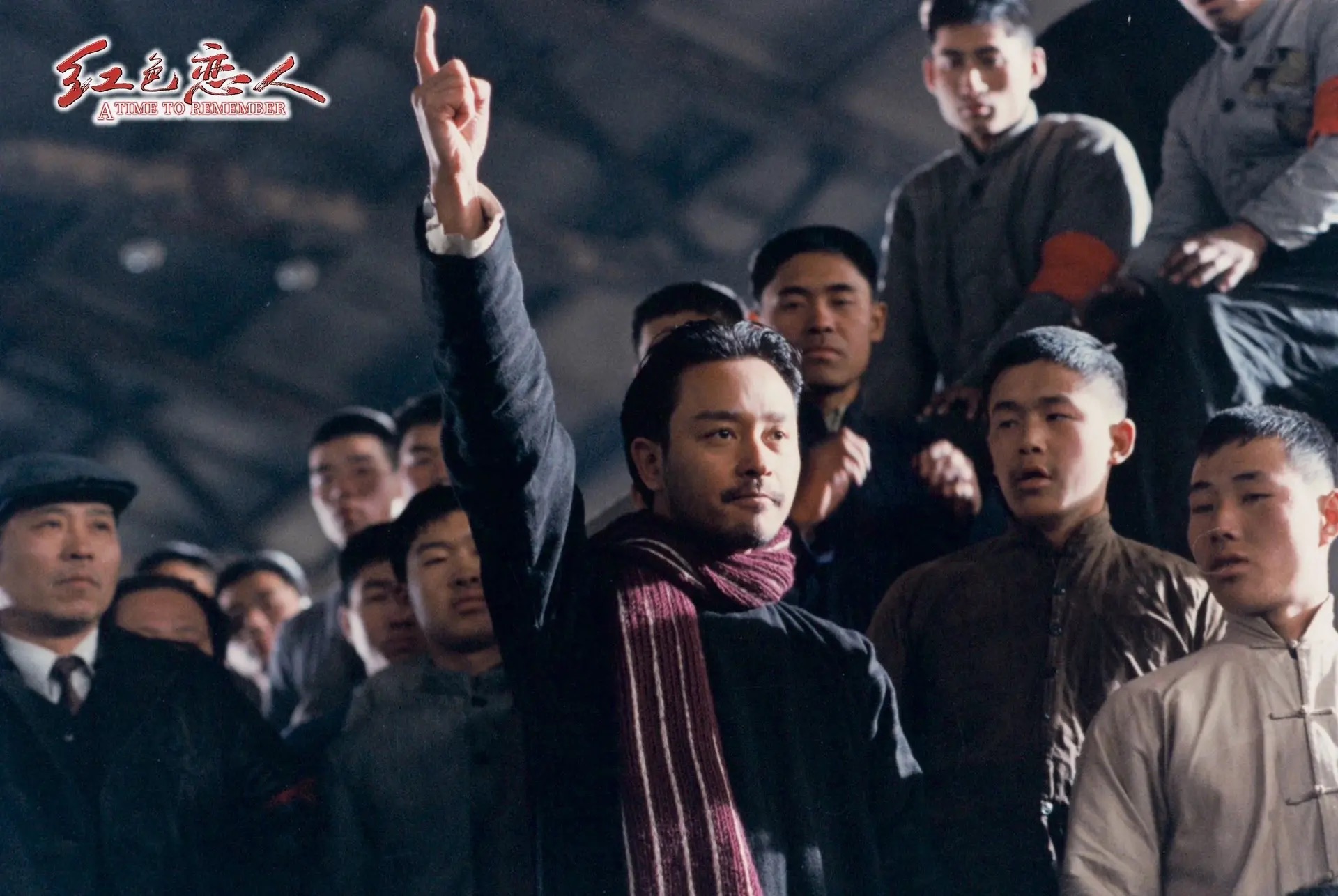
Stills of "Red Lover"
Those wonderful lines in "Red Lovers", those particularly powerful lines that show the characters' values and beliefs, were all written by Jiang Qitao. What I like the most is the sentence he wrote in it, "If I can't live proudly, then I choose death!" Including Jin preaching revolution next to the locomotive, the first sentence "We have been dealing with Mr. Chiang Kai-shek for more than ten years, and we know very well that He follows his own path." This was the way he imitated Chairman Mao and Premier Zhou's words about Chiang Kai-shek when they later met with foreign guests. He truly formed our emotional and touching stories in words and implemented them in the script. I made decisions based more on the perspective of telling.
The Paper: The story perspective of "Red Lover" is narrated by Payne, the American doctor in the film. Whose idea was it?
Ye Daying: This was brought up by all of us during the script meeting, and we all thought that it would be more powerful if this story was told through a person who is ideologically opposed to the country. In fact, it is not our first time to tell the story of the Chinese revolution from a foreigner’s perspective. From Smedley to Edgar Snow, many such foreign friends and reporters used their reports and writings to tell the story of the Chinese revolution and showcase the leaders of the Chinese Red Army and the Party. You will find the stories told from their perspectives particularly moving, and after all, we have been away from that bloody era for a long time, and their narration will make the audience feel more involved.
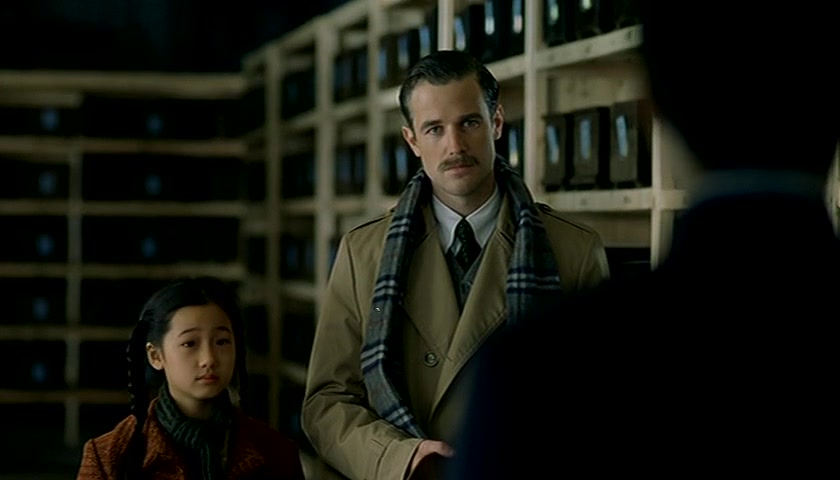
Stills of "Red Lover"
The Paper: During the opening credits of the movie, I saw that two American screenwriters also made revisions to the script. Was it because of the character of Penn that you approached an American screenwriter to get involved in the script?
Ye Daying: Yes, since Americans are telling this story, they must follow American storytelling habits and methods, including the order of lines, the tone of voice and the context design. After "Red Cherry" came out, it was also screened in the United States, including participating in awards reviews. Hollywood producers also asked me to make movies. Through friends introducing friends, I also met many American screenwriters.
The first screenwriter who got involved was Mark Caplin. I invited him to Beijing. He was actually a producer. After revising it again, I was still not satisfied. After that, I made a special trip to Los Angeles to find professional screenwriter Andy Nansanson. This is a woman, and she and I spent almost a month revising the script. One of the biggest characteristics of Hollywood screenwriters is that they ask you why for every word and every moment. Then I explained it to her. This kind of "forcing" was particularly beneficial to me. I got to know their thinking habits and the way they handle lines.
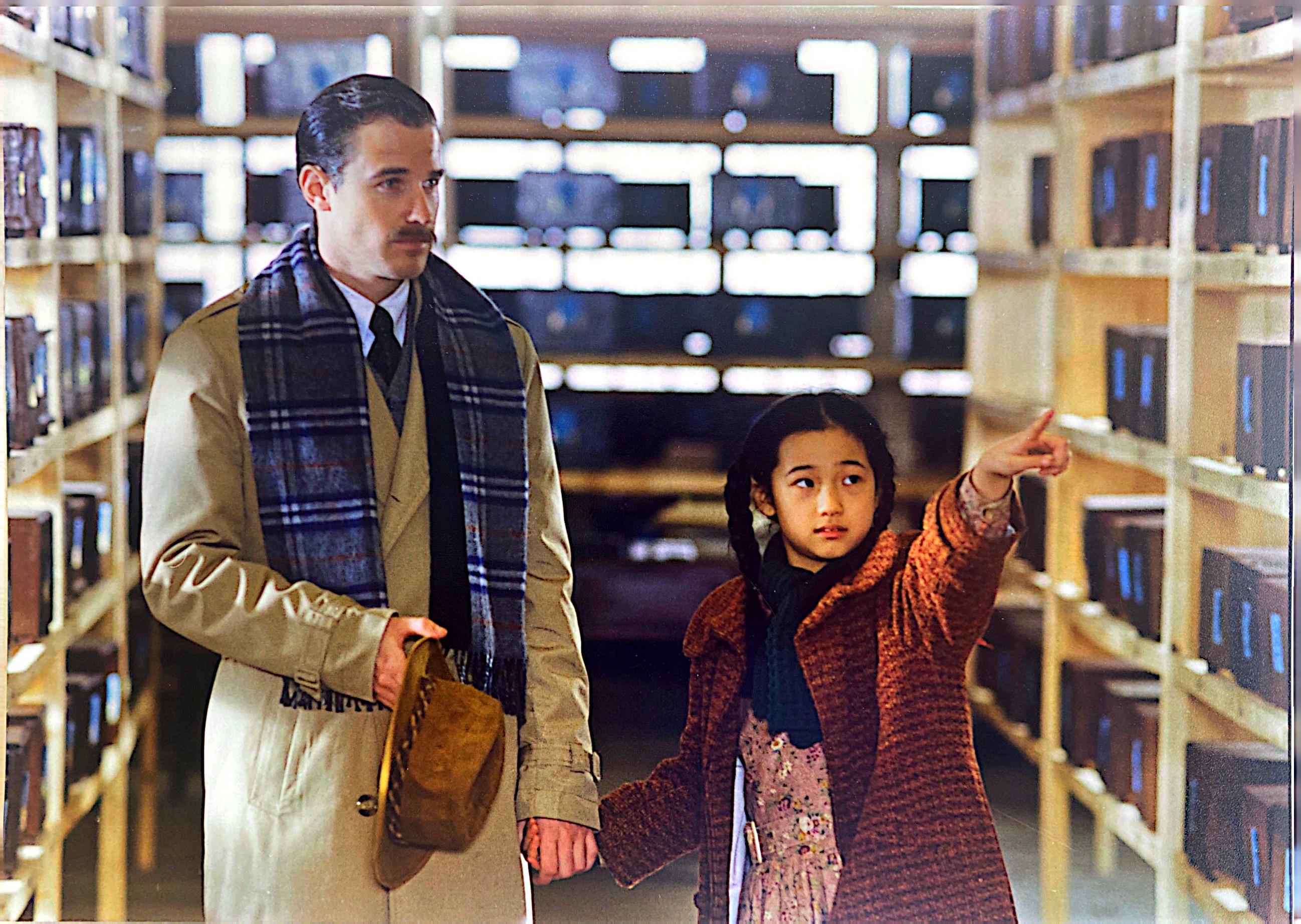
Stills of "Red Lover"
The Paper: Can you give a specific example of a collision between you?
Ye Daying: There are big differences between Chinese and English, and behind them are differences in national thinking and habits. For example, in the script, Jin tells the past events between him and his wife, "We met in Paris, and I joined the revolution because of her guidance..." Andy will ask, the word "guidance" should be in the Bible, It has a religious overtone. At the same time, she also believes that if a man embarks on the road of revolution, is it really the result of being influenced by a woman? I had to tell her that among our revolutionaries there are many husband and wife partners, and they influenced each other and embarked on the road of revolution together.
Also on "...it wasn't until she died that I became a true revolutionary." Andy didn't understand either. He asked me why Jin became a true revolutionary only after his wife died? What exactly does he believe in revolution? When did it start? This process of arguing with each other was quite annoying to me, but gradually I followed the questions she asked and sorted out the history and experiences of each character very clearly, which brought great help to the subsequent shooting. , including the live narration to American actors, it was also very smooth.
I can tell you a funny story. After "Red Lover" was released, someone from the US Embassy came to me to ask who the prototype of Payne in the film was. I was embarrassed to tell him that we made it up (laughs). But this is not a random fabrication. He bears the shadow of Smedley and Snow. In the film, Payne is not only a doctor, but also writes reports for American newspapers.
The Paper: Once Jin gets sick in the movie, Qiuqiu will read him a poem from Russian literature, "When the sun comes out, an eagle flies from the ground to the sky, and suddenly stops in mid-air, as if frozen in mid-air, without any One knows why it flies and why it stops..." Was this poem written by Lermontov? We can't find it.
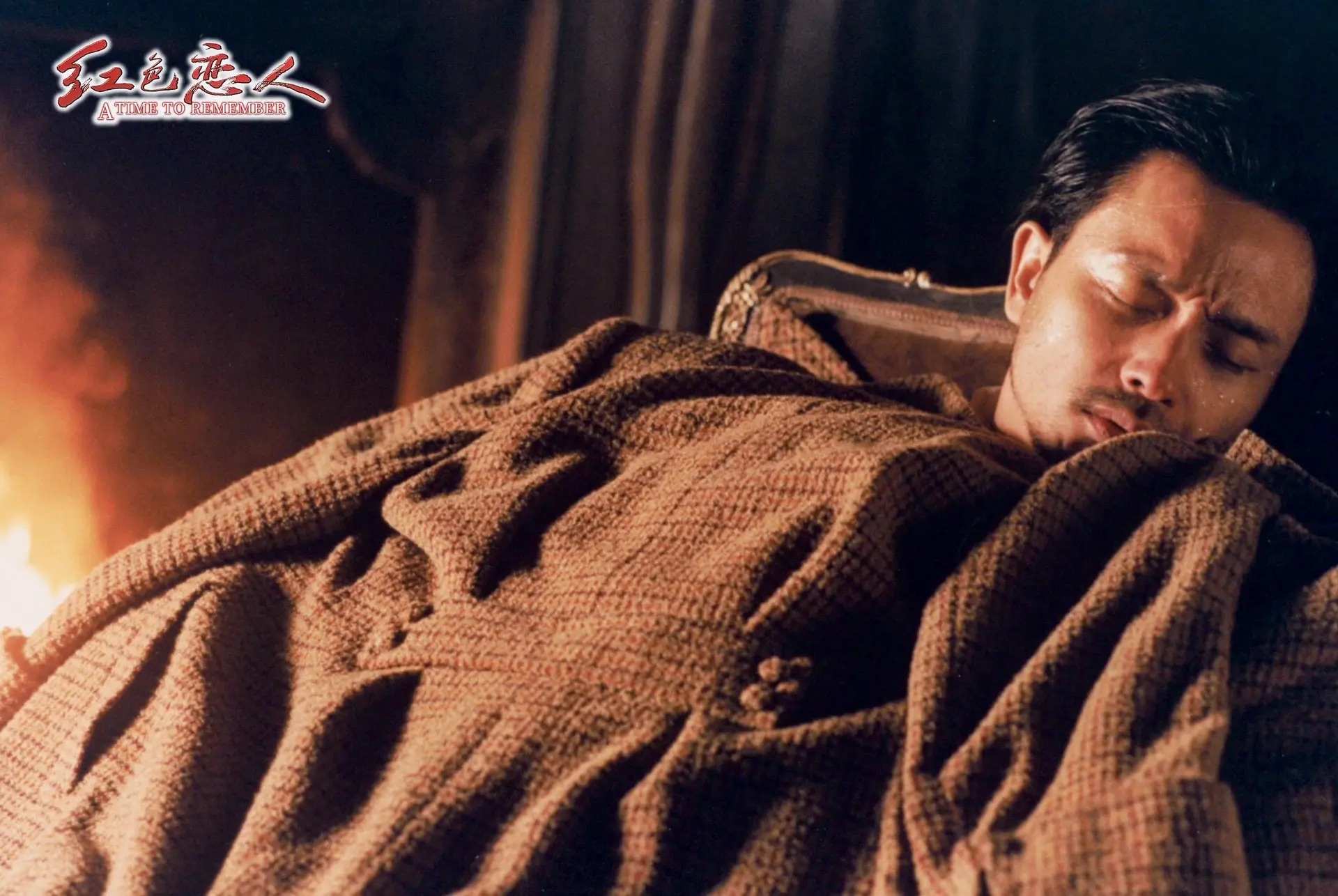
Stills of "Red Lover"
Ye Daying: You definitely can’t find it (laughs). The origin of this plot was that Premier Zhou was in the late stages of cancer. When he was in extreme pain, he would recite Chairman Mao's poems. This is the true origin. The lines that Jin read when he fell ill were made up by us, imitating Lermontov's writing style. Jin and his wife are both studying in France, but if you read French writers here, you will feel very "alienated". Choosing Russian literature, I am sure of that sense of reality, not to mention that everyone of our generation has a good sense of reality. The lingering Russian complex.
At that time, we were sifting through existing works, but we couldn't find a passage that was both particularly touching and relevant to the plot. Later, Jiang Qitao read more of it, so he simply wrote a poem based on the historical context and put it in the movie. Including the Russian literary "publication" in the movie, we also made it ourselves, which is particularly bluffing. Over the years, I don’t know how many lovers of Russian literature have asked me to confirm this. Some Russians even came to ask me who wrote the poem I picked. It made me dumbfounded.
An actor like Leslie Cheung not only understands drama, but also understands emotions
The Paper: Going back to the movie, Jin is a revolutionary and leader of the underground party. In the past, such characters often appeared in a mission-oriented manner, but in the movie, Jin came to Shanghai just for medical treatment. The movie is based on Qiuqiu's memories, how she fell in love with and admired Jin, and how she saw Jin's passionate speech next to the locomotive. This plot is a highlight of the movie and a perfect combination of revolutionary heroism and romanticism.
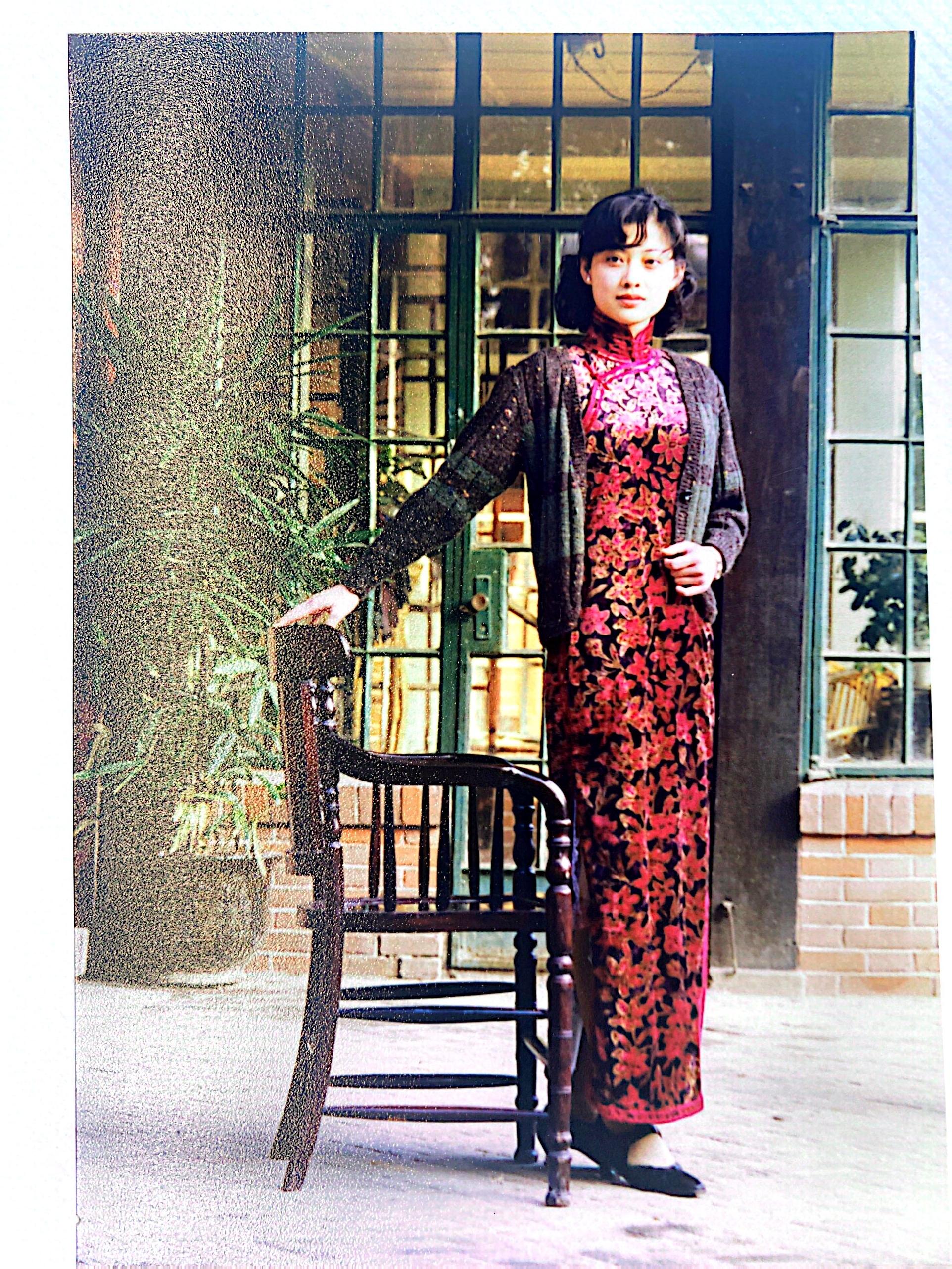
Mei Ting as Qiuqiu
Ye Daying: We cannot underestimate the audience. The audience actually knows about that period of history. If a filmmaker wants to make a movie, it must be understood and felt with heart, and it must be shot with emotion. You have to have this energy to make a good movie. I think that every scene in a movie cannot be separated and labeled. Good movies, and even those classical literature and drama works, will not only solve one problem in one scene, but will echo back and forth and be connected from top to bottom. of.
I later filmed "General Chen Geng". He was injured in his right leg during the fourth anti-"encirclement and suppression" campaign in the Soviet area and had to go to Shanghai for treatment. Including Qu Qiubai, whom I just mentioned, also went to Shanghai to treat tuberculosis. In fact, many of the early leaders who were injured during the counter-encirclement and suppression campaigns, including during the Long March, went to Shanghai for medical treatment. At that time, only Shanghai had such medical conditions. In addition, Dr. Ke Lin in Shanghai Special Branch studied medicine in university, which means that he is not only an agent who can pick up rapes, but also treats people. The clinic he opened in Shanghai is also a transportation station.
When filming that scene, I definitely had to find a locomotive, which is a representative image. Zhang Li still had a high fever on the day of filming, but he persisted. Leslie Cheung's long line of dialogue was broken down into several parts for filming. At the end of each part, the extras on the scene would burst into warm applause. He had a habit on the set. After filming a scene, the first thing he would look at would be me. I If he thought it was good, he would still squat by the monitor and watch the replay. He is a perfectionist and shoots three or four scenes for many scenes. He must choose the one with the most accurate condition. When he finally clenched his fists and said, "Their name is the Red Army!" The crowd burst into cheers, and I shouted, "It's passed, it's passed!" He said with relief, "It's over." Then he raised his fists with both hands. He bowed his head and thanked everyone.
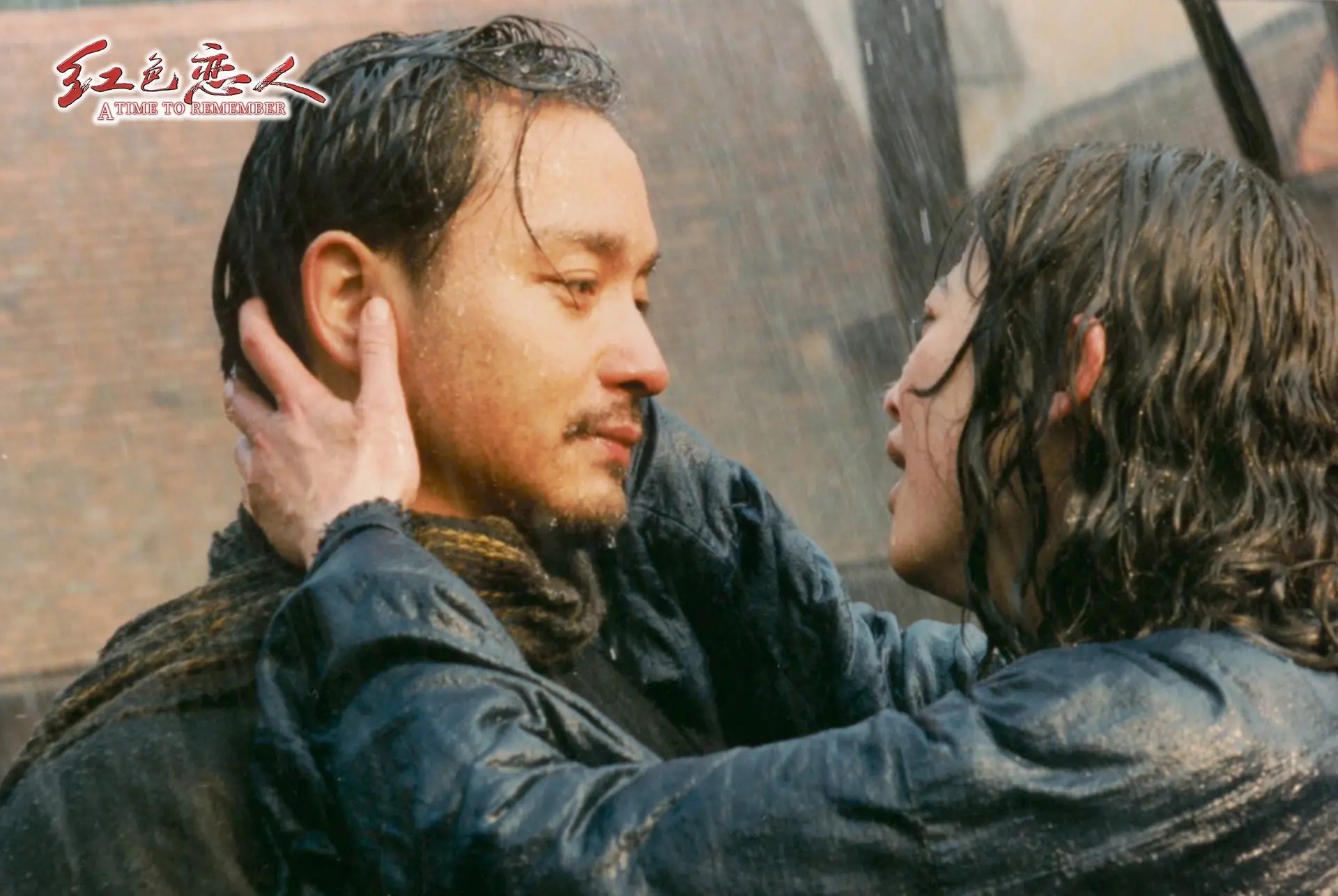
Stills of "Red Lover"
The Paper: Regarding Leslie Cheung’s acting skills, what was the scene that impressed you the most on the set?
Ye Daying: His performances often shock me. For example, in the film Zhongqiuqiu, I left a letter to Jin. Leslie Cheung asked me what I wanted before reading the letter. I said that I really hope that tears will come out of your eyes when you are reading it, but it must stop in your eyes. You will still shed tears at the end of reading it. Take it back. I told him that this is my understanding of the emotions of revolutionaries, and the love between children and children must be contained here. That scene was shot three times. In fact, he did it the first time and was able to stretch it really well, but he still wanted to try it again because he felt he could do better.
Before "Red Lover", Leslie Cheung had acted in more than 70 movies. His acting skills can be said to be extremely proficient, and he is a particularly talented and thoughtful actor. When I first met him and discussed the script with him, I noticed that his eyes followed the ups and downs of the characters in the story, and I immediately decided that the role of Jin was his. I don't deny that creating a character requires experiencing life, but there are many ways to experience this. You don't have to be a party member to play a party member, and you don't have to be an emperor to play the emperor. There are many ways an actor can get close to a character and draw on emotion. Leslie Cheung is such an actor. He not only understands drama, but also understands emotions. He interprets the role with his life.
After the filming of the movie was completed, I gave him the gown Leslie Cheung wore in the movie, and he said he would take it back and keep it. He left us 20 years ago, and I still think of him from time to time - in the movie, Jin had a line when describing his wife's sacrifice, "The building was very high, and she fell in the air for a long time. The scene was very much like a Russian novel." The description in it." Later, a friend asked me, is this too similar to Leslie Cheung jumping to end his life? I think he was taken away by depression, and when he could no longer live proudly, he chose death. I myself suffered from depression, and it took me several years to recover, so I particularly understand the emotions people feel when they are in despair. Depression has no clear cause and effect, it is a terrible disease.
The Paper: Let’s talk about the father and daughter played by Mei Ting and Tao Zeru. The role of Qiuqiu is not easy to play. In front of Jin, she sometimes looks like a student and sometimes a lover. When comforting Jin, she has to show the brilliance of motherhood. Haoming is not a traitor with a facial expression.
Ye Daying: Mei Ting was still a dancer in the Frontline Art Troupe at the time. She had previously played Chu Chu in the TV series "Blood Child Heart" (the drama version of "Red Cherry"). I think Leslie Cheung is very good at acting. When she and he were filming together, she didn't feel the airs of a star. They still felt that they had a tacit understanding. After the release of "Red Lovers", I held a seminar in Shanghai. I remember when teacher Zhang Ruifang gave her speech, she said that Qiuqiu reminded her of the time when she joined the Party at the age of 17.
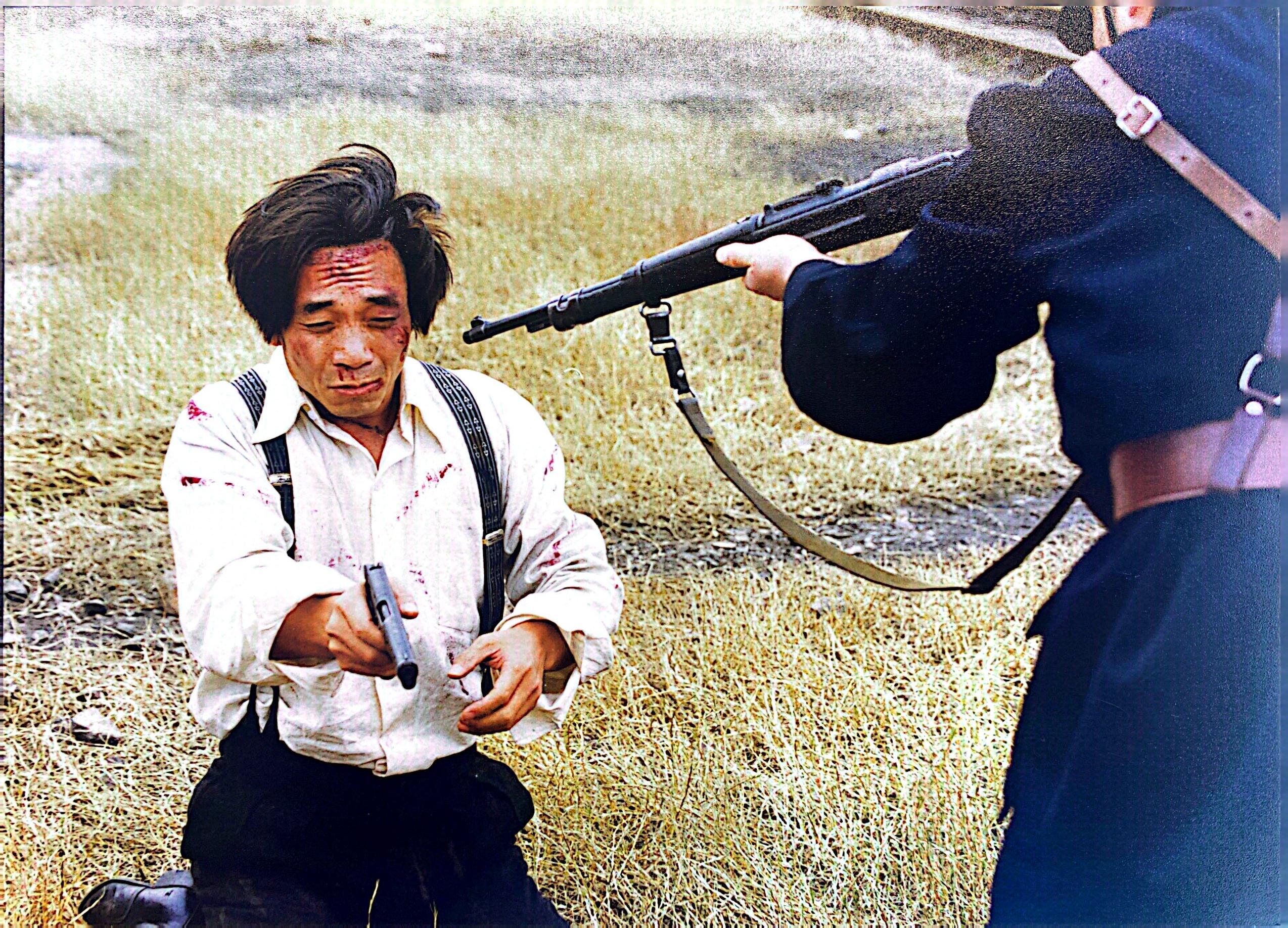
Under the coercion of the enemy, the traitor Haoming aimed his gun at his comrades
Tao Zeru's role as the Eighth Route Army in "One and Eight" left a deep impression on people. This time I asked him to play the traitor. His role as Haoming reminded people of Gu Shunzhang - I have seen many traitor roles. Memoirs, some people don’t turn traitor as soon as they enter. Therefore, when shaping Haoming, I added some fatalistic colors to him, making him more literary and artistic. In such a story, humanity is the most important, and what the audience wants to see is the conflict between humanity and faith, and his betrayal and Jin's steadfastness also form a set of contrasting relationships.
In fact, the difficulty of this movie for the two of them is that there are a lot of English lines. Mei Ting and Tao Zeru both learned and taught English. Most of the actors joined the cast two months in advance, but Mei Ting joined the cast earlier, and she had already memorized her lines by heart before filming started. Some people think that the English spoken by Tao Zeru is very Genish, but many foreigners think that the English spoken by Hao Ming in the play should be like this.
The Paper: The movie story is set in Shanghai in 1936. From the perspective of setting and art, what were the focuses and emphasis at that time?
Ye Daying: Our artist is Qian Yunxuan, a veteran artist from Xi'an Film Studio, who is well-known in the industry. The bar scene at the beginning of the movie was shot in a car pier. The part where Qiuqiu kills Haoming at the end of the film was filmed at the former site of the HSBC Bank Building at No. 12 on the Bund. The old building from 1923 had marble and brass as decorative materials inside, making it very magnificent. At that time, this building was about to be converted into the headquarters of Shanghai Pudong Development Bank. The person in charge happened to be a fan of "Red Cherry" and agreed to lend us a floor for filming. Many scenes were shot in it.
The images and temperament presented in a movie must be in line with the times. In this regard, I am still very satisfied. During the "Red Lovers" Shanghai seminar, Mr. Xie Jin joked with me in the bathroom, "We Shanghai filmmakers have always wanted to make a story about old Shanghai, but why did you, a kid from Beijing, make it?" I answered him in Shanghainese, "Alas Shanghai Ning, haha." I have lived in Shanghai, from elementary school to middle school and then to technical school, so I still have some sense of the past flavor of Shanghai.
The Paper: This movie is being released again after 25 years, and the audience has iterated on it. How do you hope the current post-2000 audience will interpret this movie?
Ye Daying: During this road show of the re-screening, what particularly touched me was the young audience. During the post-screening interaction, many girls born after 2000 stood up speechless and still crying... Their generation can be moved by the plot, which makes I feel like this movie is still very new. Many things in it can still hit people's hearts even though they travel through time and space. Young audiences will see an unexpected Leslie Cheung and an unexpected red love story on the big screen.
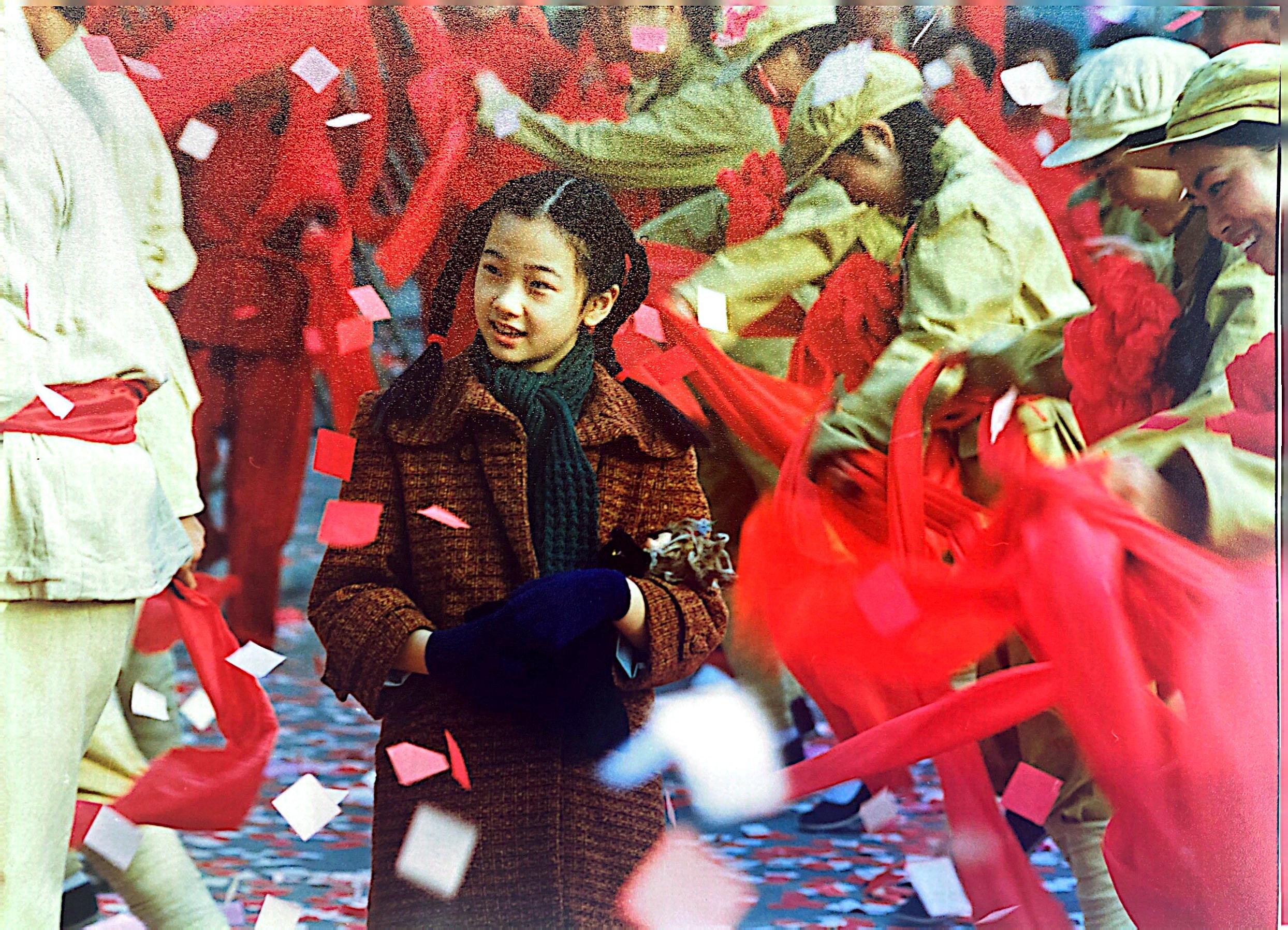
Stills of "Red Lover"
The Paper: You used a montage technique at the end of the film: in 1949, Jin and Qiuqiu’s daughter Xiao Mingzhu took away the remaining shrapnel in her father’s body from her parents’ urn, and then the overhead shot looked like The scene was "unknown", but it traveled back to 1997 near the Shanghai People's Heroes Memorial Tower on the Bund, and then gave a panoramic view of Lujiazui, Pudong on the other side. I think this is also a tribute to history.
Ye Daying: Of course you are right to understand it this way. I don’t want to put this movie too plainly. Audiences will naturally have their own interpretations when entering the theater. What does a good movie look like? When I was studying at the Beijing Film Academy, a teacher once said, if you can tell a story clearly with slogans or words, or write it clearly with words, then why make movies? A good movie brings a holistic perception to the audience through montage. It uses the language of the movie to give people a feeling that is clear but unclear, unclear and indescribable.
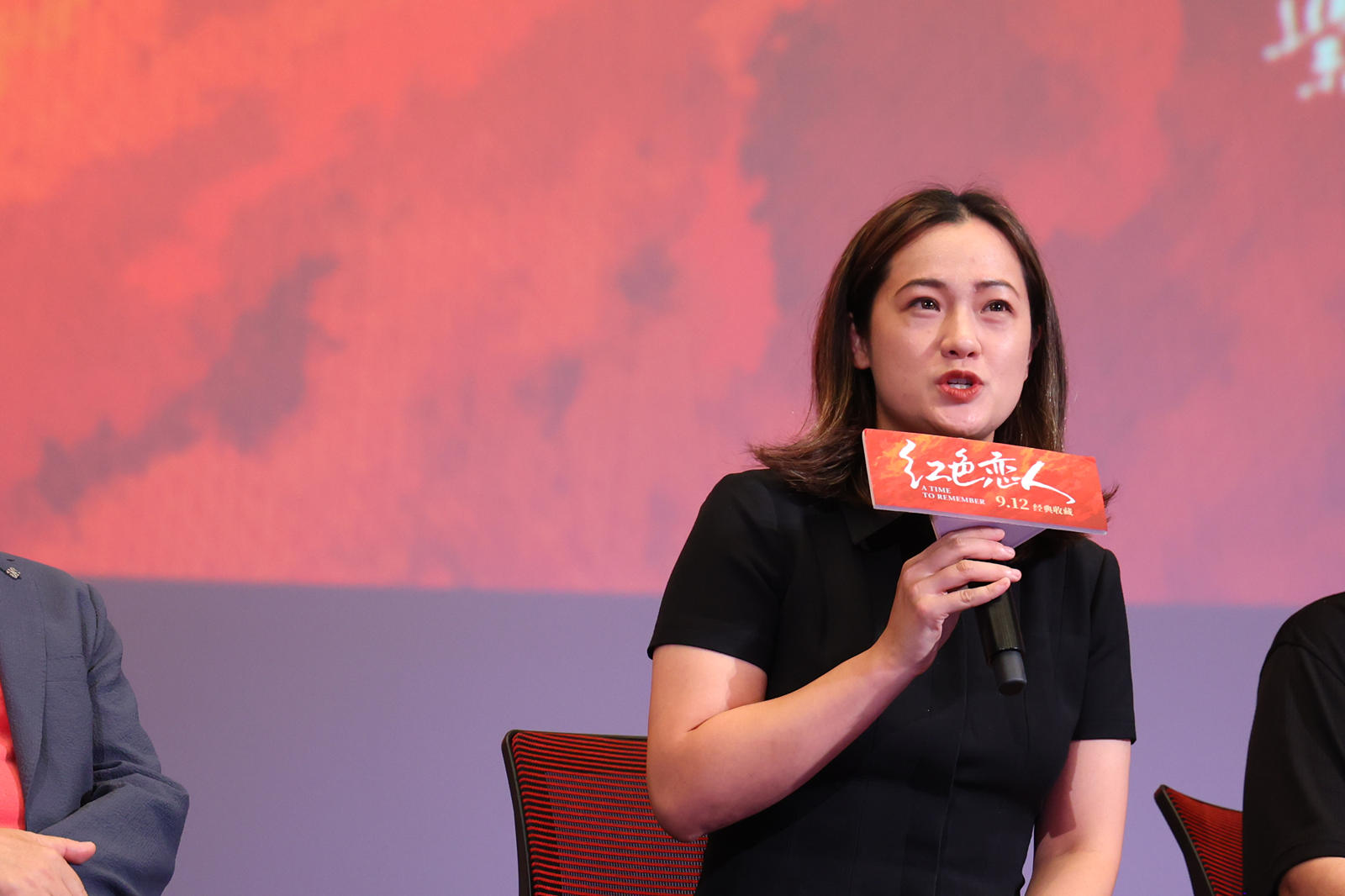
Ye Dandan, who plays Little Pearl in the movie, is already the mother of two children


